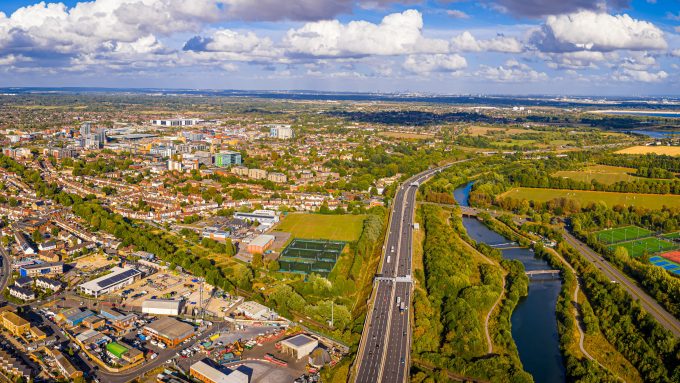
Aberdeen: adapting old skills to new challenges

Cyclical periods of boom and bust in the North Sea oil and gas sector have hit North East Scotland hard, but the city of Aberdeen and its surrounding region are “re-evaluating themselves” with efforts to push ahead with a transfer to renewable energy infrastructure and cutting-edge technologies, according to Pete Edwards, the Vice-Principal for Regional Engagement at the University of Aberdeen.
“Our region and city are at a critical juncture. We've spent the last 50 years being the oil and gas capital – of not just the UK, but of Europe – and we are now working towards the transition to a future, low-carbon energy system. There is a real desire to mobilise the assets we have around innovation to ensure we maximise them in support of our regional success.”
The North East of Scotland region is about to publish a new economic strategy that will make a series of recommendations including upping its efforts to improve the regional innovation ecosystem. “This will be a major focus for the University and is where being part of the Innovation Places Leadership Academy to share ideas with other cities has been particularly helpful,” says Pete.
“This region of Scotland enjoyed great wealth over the last 50 years, brought about by the energy industry, and there is a huge level of expertise here that can help with the energy transition,” he adds. “Skills built off the back of oil and gas can be transferred to new energy systems like offshore wind and hydrogen.”
Creating opportunity and acting as a ‘place anchor’
As well as renewable energy, the city of Aberdeen and its wider region have ambitions to grow their capabilities in the life sciences sector. June saw the launch of a new £40 million facility called Biohub, co-located with the University’s Institute of Medical Sciences (home to nearly 400 researchers) and an NHS teaching hospital and innovation hub.
“Our challenge is to translate our world-class research into commercial opportunity, to help grow what is an emerging sector in North East Scotland into something more substantial,” Pete says. The hope is it will attract more businesses to relocate into the area, and people who want to pursue careers in the sector.”
The Port of Aberdeen is one of the UK’s oldest businesses, founded in 1136, and the University was founded in 1495. Both have a crucial role in helping to shape Aberdeen’s future.
An established figure
Pete Edwards started his career as a computer scientist and joined the University of Aberdeen in a postdoctoral capacity in 1988, before working his way up from lecturer to professor.
He headed the University’s computing science department for several years and went on to run its physical sciences and engineering graduate school before leading one of the UK research councils’ digital economy research hubs based in Aberdeen.
“That was one of the highlights of my career. It brought management and leadership together with research, with a focus on improving the digital economy from the perspective of rural communities to improve health outcomes, economic resilience and crucially infrastructure.”
Pete later ran the University’s school of Natural and Computing Sciences for four years, before becoming its Vice-Principal (Pro Vice-Chancellor) for Regional Engagement in 2021.
“The role means I'm responsible for place strategy at the University and engagement with regional economic and business partners, with a focus on placing the university at the centre of enterprise and innovation.”
Skills is a big focus
Asked what over-riding issue UK cities need to get to grips with over the coming decade, Pete chooses skills. “We're not going to have an innovation-driven economy and solve the net zero challenge without improving STEM education.”
What about levelling-up? “I strongly support levelling up as a principle; but as this part of the country has for many decades been one of the economic powerhouses of the UK it perhaps hasn’t been at the forefront of that agenda until recently.
“The recent announcement that the North East of Scotland has been awarded Investment Zone status is an exciting opportunity for partners across the region to work together to increase local innovation capacity around a number of clusters. The University will have a key role to play by supporting the development of knowledge networks, nurturing and supporting local talent, enhancing commercialisation of research, and supporting scale-up and adoption of promising innovations.”
And what does Pete think will need to change at his own institution for it to deliver on the potential of the Investment Zone? “The University will need to improve the flow of information and ideas between academics and industry, translating more of our research into successful innovation-driven enterprises.”
Taking part in the Innovation Places Leadership Academy has been very rewarding, Pete says. “To hear from different city regions across the UK has been valuable. It has been great to build a rapport with colleagues from elsewhere with whom you can talk through shared challenges.”
Connected Places Catapult is hosting an ‘Innovation Hub’ in Aberdeen on 11 July for entrepreneurs, start-up founders and small business leaders to discuss the support available for growing companies in the region.





